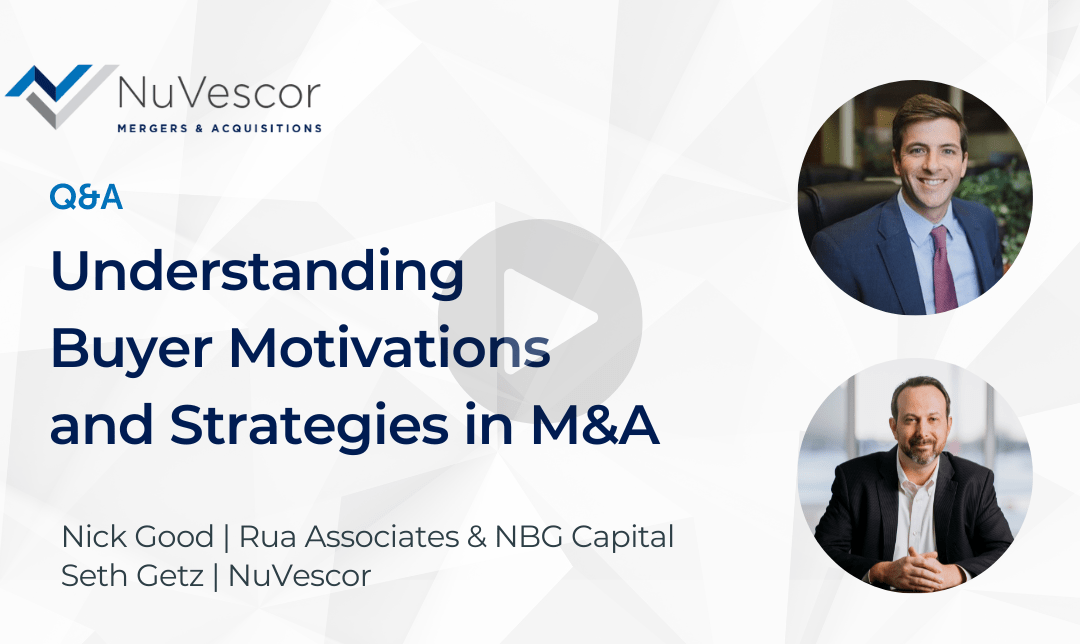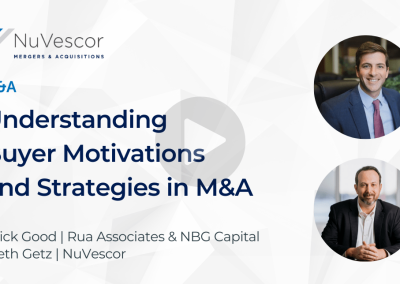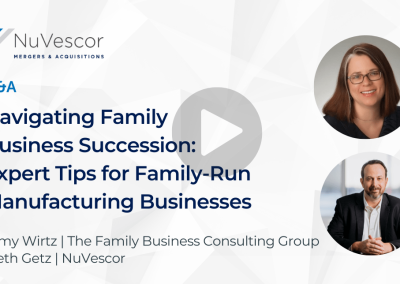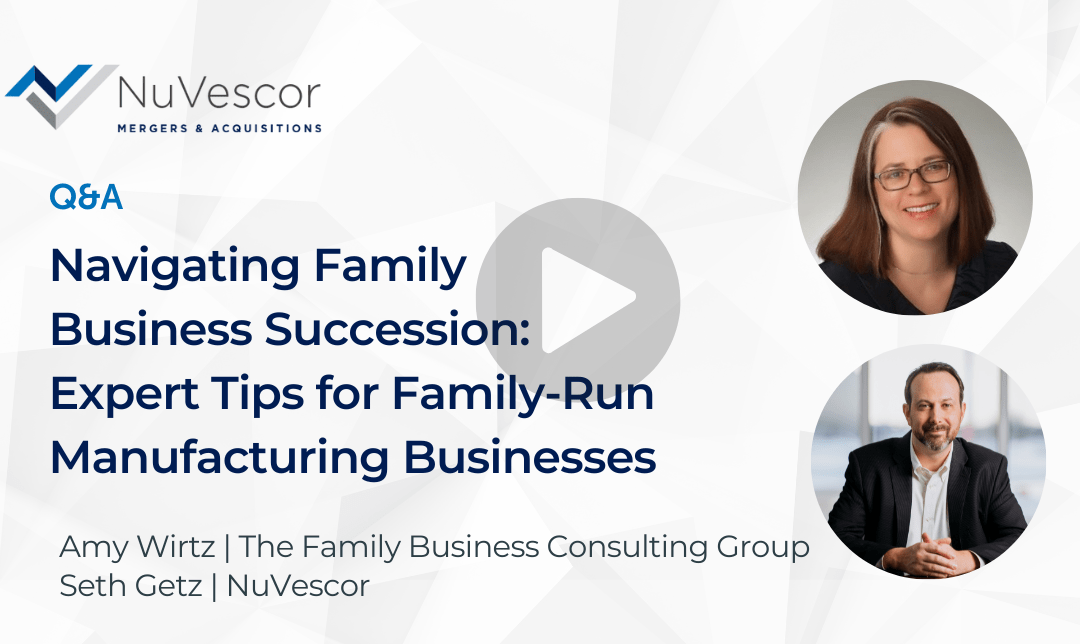
Understanding Buyer Motivations and Strategies in M&A
Understanding Buyer Motivations and Strategies in M&A
An interview with Nick Good, Advisor with Rua Associates
July 18, 2024
Navigating the world of mergers and acquisitions (M&A) can be a complex journey, especially for business owners looking to sell their companies. Recently, Seth Getz from NuVescor had an insightful discussion with Rua Associates Advisor Nick Good, who shared valuable insights into the different types of buyers in the market and how their motivations can impact the sale process.
Types of Buyers and Their Motivations
One of the key topics discussed was the variety of buyers that sellers might encounter. According to Nick, understanding the different motivations of these buyers is crucial for a successful sale. “We see different types of buyers with unique motivations. Corporate buyers, for instance, are often looking to expand their market share or acquire new technology,” Nick explains. “They’re typically motivated by strategic benefits and might be willing to pay a premium for synergies they foresee.”
On the other hand, financial buyers, such as private equity firms, have a different approach. “Financial buyers are generally focused on the potential for financial returns. They look at your business as an investment and are keen on its growth potential and profitability,” Nick says. This distinction is vital for sellers to understand, as it can significantly influence the negotiation process and the final deal structure.
Strategic Growth Through M&A
Nick also touched on how companies can leverage M&A to achieve strategic growth. “Acquiring another business can provide immediate access to new markets, customers, and capabilities,” he notes. This approach can be particularly beneficial for businesses looking to accelerate their growth trajectory without the time and resource investment required for organic growth.
However, Nick cautions that this strategy comes with its challenges. “Integration is a critical phase. It’s where many deals falter. Ensuring cultural alignment and operational compatibility is essential for the long-term success of the acquisition,” he emphasizes.
Preparing for Sale to Maximize Value
Preparation is key to maximizing the value of a business when it comes time to sell. Nick advises that owners should start planning well in advance. “It’s not just about cleaning up the financials, although that’s important. It’s also about having a strong management team in place and demonstrating a clear growth strategy,” he says.
He also points out the importance of understanding the current market trends and valuation multiples within the industry. “Being well-informed allows you to set realistic expectations and position your business more attractively to potential buyers,” Nick adds.
Practical Steps for Succession Planning
For those considering succession planning, Nick offers practical advice. “Start early and involve key stakeholders in the process. Whether you’re passing the business to family members or selling to an external party, having a clear plan can mitigate potential conflicts and ensure a smoother transition,” he advises.
Nick also highlights the importance of seeking professional guidance. “Engaging with experienced advisors can provide you with the expertise needed to navigate the complexities of M&A and succession planning,” he recommends.
“Knowledge and Preparation are Your Best Allies in this Journey”
In the ever-evolving landscape of M&A, understanding the motivations of different buyers, strategically preparing for sale, and planning for succession are critical components of a successful exit strategy. As Nick Good puts it, “Knowledge and preparation are your best allies in this journey.”
By understanding what drives different buyers and preparing your business accordingly, you can maximize value and achieve a successful outcome.”
For more insights and personalized advice, Nick Good and Seth Getz can be reached through NuVescor, where they continue to support business owners in navigating the complexities of mergers, acquisitions, and succession planning.












Recent Comments